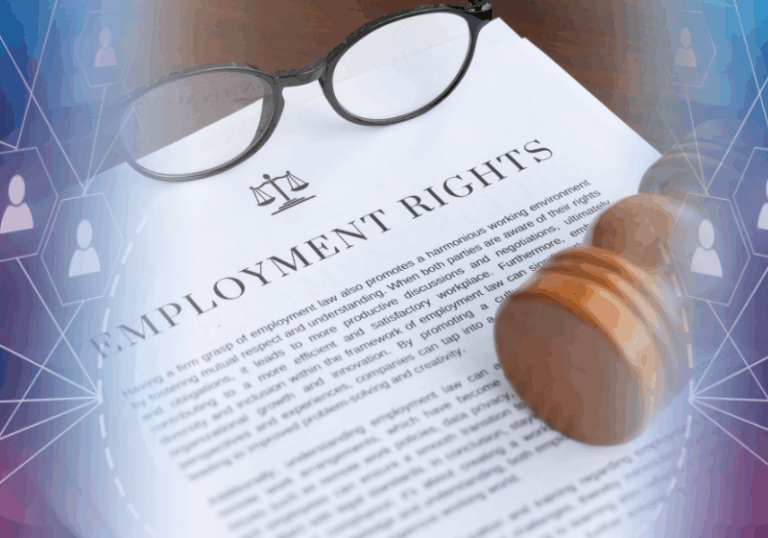Breaching Minimum Wage: Is Your Business at Risk?

One of the more common misconceptions people have towards minimum wage law is that they assume salaried positions don’t have to correspond to hours worked. In other words, many employers seem to think that a job with a salary means that employees always get their salary, regardless of hours worked. This is, quite simply, not the case: instead, the hourly rate must always correspond to the national minimum wage regardless of the figure of the salary. In this article, we examine the history of the minimum wage, notable breaches, its implications for employers and employees as well as how business owners can make sure that they don’t fall on the wrong side of the law.
Minimum Wage in UK Law
The National Minimum Wage Act 1998 (NMW) and the National Living Wage Act 2016 (NLW) have, in their current iterations, established the legal structure for all workers aged 16 and over in the UK[1]. His Majesty’s Revenue & Customs (HMRC) have the authority to bring employers to court if they are found to be underpaying their workers to that extent that they are considered below the minimum wage.
The current rates for all workers in 2023 are as below:
| NMW Rate | Annual Increase (£) | Annual Increase (per cent) | |
| National Living Wage (23+) | £10.42 | 0.92 | 9.7 |
| 21-22 Year Old Rate | £10.18 | 1.00 | 10.9 |
| 18-20 Year Old Rate | £7.49 | 0.66 | 9.7 |
| 16-17 Year Old Rate | £5.28 | 0.47 | 9.7 |
| Apprentice Rate | £5.28 | 0.47 | 9.7 |
| Accommodation Offset | £9.10 | 0.40 | 4.6 |
However, instances of breaching this foundational element of UK employment law are not uncommon, often leading to significant implications for both employers and employees.
Notables Breaches of Minimum Wage
A notable case involved the large retail chain Argos, which failed to pay £480k to over 10,000 workers[2] just last year after previously being fined £1.5 million by HM Revenue & Customs back in 2017[3]. Both cases are notable for multiple reasons, first among them being that the practice appears to be so widespread. To the latter, their underpayments affected 12,000 of their currently employed staff back in 2017, with a further 25,000 former staff also short-changed. Secondly, the cause of the issue was an alleged payroll administration issue, the details of which have not been made public. Lastly, the sheer amount of wages that they owed, some £2.4 million. Unfortunately, this is far from the only example.
Another case just this year involved the widely-known chain WH Smith, who also failed to pay over a million to some 17,000 workers. The government’s findings indicate that 39% of employers deducted wages from their workers, with that exact same figure of 39% failing to pay employees correctly for their working time.
Pay Deductions – Ensure Your Business is Not Risking The Breach of NMW
This raises a pertinent issue surrounding deductions: many businesses expect their staff to take a deduction of their wages to account for their work attire or other work-related tools. However, according to Acas guidelines, any deductions must not take the employee’s wages below the minimum, unless they are for[4]:
- Tax or National Insurance
- Something an employee’s done which their contract says they’re liable for, such as damage to a vehicle through reckless driving
- Repayment of a wage advance or loan
- An overpayment made by mistake
- Buying shares, other securities or share options in the business
- Accommodation being provided by an employer – find out more about accommodation deductions on GOV.UK
- Something the employee benefits from – for example trade union subscriptions or pension contributions
- The court determines the amount deducted through an attachment of earnings order, which will only come into effect once the protected earnings threshold has been applied.
These rare exceptions aside, be extremely wary when making deductions as it can easily make your workers fall below the minimum wage threshold.
The 10% Rule
Even in cases where a deduction is considered valid, it should be noted that a deduction to salary or wages can never go above 10% of someone’s weekly or gross pay according to Acas.
For instance, if a minimum wage worker gets into an accident and writes off a company vehicle, you may be tempted to recoup the lost money in a harsh set of deductions spread across a few months. However, if said deductions is over the employee’s weekly or monthly gross pay (before tax and National Insurance) then it is considered illegal to do so.
It should always be noted that penalties for ignoring minimum wage laws are severe and can include fines and even imprisonment. The low-paying employers can also be called out in public as with the previous examples, furthering damaging their reputation and ability to recruit staff. However, breaches continue, indicating a need for further action to enforce these crucial employment laws effectively, and to ensure fair wages for all workers across the country.
Salaries versus Minimum Wage Requirements
It’s a common misconception among employers that salaried employees are exempt from the minimum wage. In the UK, however, the law unequivocally states that all workers, irrespective of whether they’re paid hourly or salaried, are entitled to receive at least the National Minimum Wage.
Although the minimum wage naturally varies according to age and status (i.e., whether or not they are classed as an apprentice), employers must ensure that the total amount paid over the course of the year divided by the number of payable hours does not fall below the NMW.
In simple terms, this means that if your 23+ salaried worker is on, say, £20,000 per annum, then their hourly rate must not fall below £10.42. In practical terms, this can happen because the worker actually does more than the 36 hours stated in their contract at an hourly rate of £10.68. If said worker actually averages 38 hours per week, then their salary falls just short of the minimum wage at £10.12, which is therefore illegal.
Employers failing to pay the NMW could face severe penalties. These include financial penalties of up to 200% of the unpaid wages, a maximum fine of £20,000 per worker, and the risk of being subject to a public naming scheme[5]. Grave consequences, and ones which any business would do well to avoid.
Conclusion
It’s crucial for employers to understand that salaried workers are not exempt from the minimum wage. Not only is it a legal obligation, but it also demonstrates a commitment to fair pay and contributes to a positive workplace culture. Employers need to stay updated with changes in the NMW rates and adjust salaries accordingly to avoid falling foul of the law.
Similarly, employers should also be acutely aware of what falls under a reasonable salary deduction and what does not. If you are unsure about whether or not your business is at risk, then why not contact our dedicated team of payroll experts and HR advisors at [email protected]or give us a call on 01455 444 222.
[1] UK Government. (1998). National Minimum Wage Act. https://www.legislation.gov.uk/ukpga/1998/39/contents
[2] Rt Hon Hollinrake, K. MP; Department for Business and Trade. (21st June 2023). More Than 200 Companies Named for Not Paying Staff Minimum Wage.https://www.gov.uk/government/news/more-than-200-companies-named-for-not-paying-staff-minimum-wage
[3] Butler, S. The Guardian. (February 16th 2017). Argos to pay £2.4m to 37,000 workers paid less than minimum wage. https://www.theguardian.com/business/2017/feb/16/argos-fined-paying-below-minimum-wage
[4] Acas. (July 14th 2023). Deductions from pay and wages. https://www.acas.org.uk/deductions-from-pay-and-wages
[5] UK Government. (15th June 2022). National Minimum Wage: Policy on Enforcement, Prosecutions and Naming Employers Who Break National Minimum Wage Law.https://www.gov.uk/government/publications/enforcing-national-minimum-wage-law/national-minimum-wage-policy-on-enforcement-prosecutions-and-naming-employers-who-break-national-minimum-wage-law
James Dawson
James is our resident wordsmith and has many years of experience in writing about a huge variety of topics from HR to Occupational Health and beyond. He has been published in numerous magazines and news outlets, and especially enjoys researching and analysing the current trends in the modern business world.




